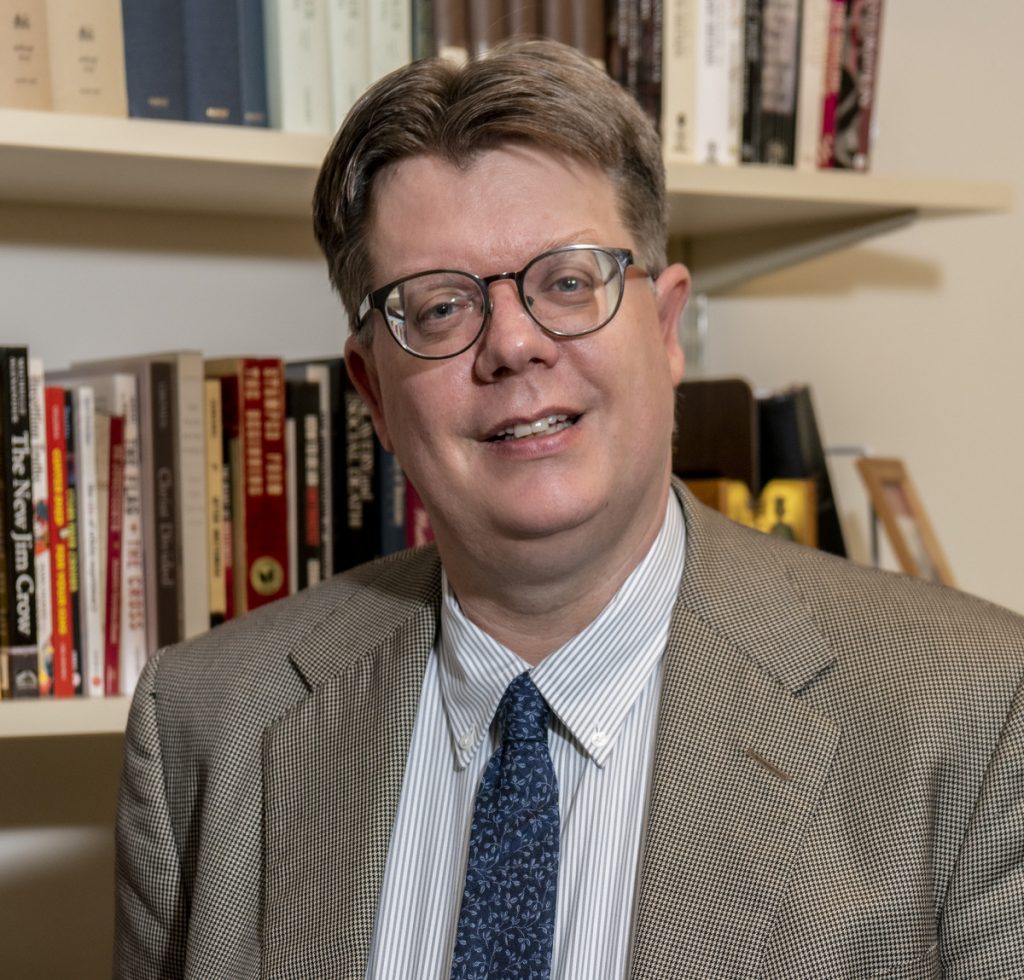
James Buckser
Staff writer
Daniel Joslyn-Siemiatkoski works in the field of comparative theology.
“What comparative theology does is it tries to learn more, tries to answer theological questions by delving deeply into a tradition other than one’s own,” he said.
Joslyn-Siemiatkoski will speak at 2 p.m. today in the Hall of Philosophy as a part of Week Nine of the Interfaith Lecture Series, with its theme of “Realizing Our One World: Strengthening Interconnection.”
Joslyn-Siemiatkoski is the Kraft Family Professor and director of the Center of Christian Jewish Learning at Boston College. He is the author of The More Torah, The More Life: A Christian Commentary on the Mishnah Avot.
“By writing a commentary on a Jewish text, what I did was I bracketed off my own kind of Christian presuppositions first, and try to come to terms with the text solely as a Jewish text,” Joslyn-Siemiatkoski said. “Then, I asked the question once I was done working through the commentaries: What do I know now as a Christian that I didn’t have as deep of an awareness of before?”
He said the field of comparative theology “developed more in dialogue with Eastern traditions,” with Christianity looking at Judaism as closely related.
“Comparative theology really developed out of Christians living in non-monotheistic contexts and asking, ‘OK, how do I make sense of this vibrant religious tradition that’s all around me?’ ” Joslyn-Siemiatkoski said.
The More Torah, The More Life is part of a series of Christian commentaries on non-Christian sacred texts, he said. In Judaism, he said this would be the Hebrew Bible, but Joslyn-Siemiatkoski went beyond.
“I took the next step to say, ‘OK, what are other texts in the Jewish tradition that might be worth commenting on?’ ” Joslyn-Siemiatkoski said. “Mishnah Avot is what we would call a wisdom sayings collection from about the end of the second century of the common era, roughly contemporaneous with early Christianity, so that’s why it was kind of a useful text to engage with.”
At Boston College, Joslyn-Siemiatkoski said the Center of Christian-Jewish Learning is designed to “foster the repair of relationships between Jews and Christians in the wake of the Holocaust.”
Boston College, a Jesuit Catholic institution, is committed to the “various teachings the Roman Catholic Church has issued since the Second Vatican Council,” which instructs Christians to “recommit to creating positive relationships between Jews and Christians,” Joslyn-Siemiatkoski said.
His talk will be about “cultivating curiosity,” and “how we can learn how to engage with difference,” he said.
The lecture will include discussion on the role of the state of Israel in the Jewish community and act as an “examination of what happens when we get curious about another tradition,” he said.
“In a lot of ways, the relationships between Jews and Christians have seemed to be conflictual,” Joslyn-Siemiatkoski said. “But if we cultivate curiosity, we begin to take ourselves out of the equation and listen to the other more deeply.”




